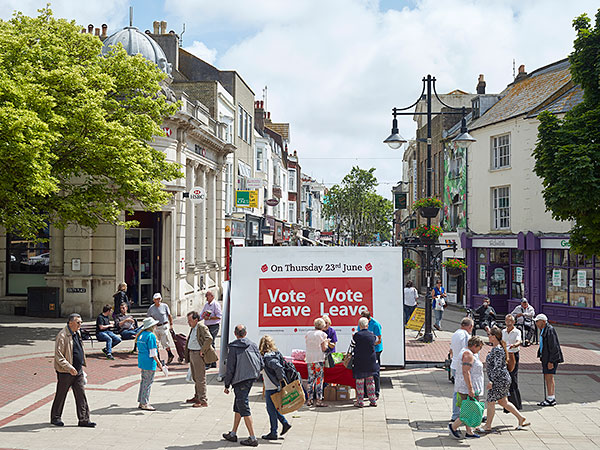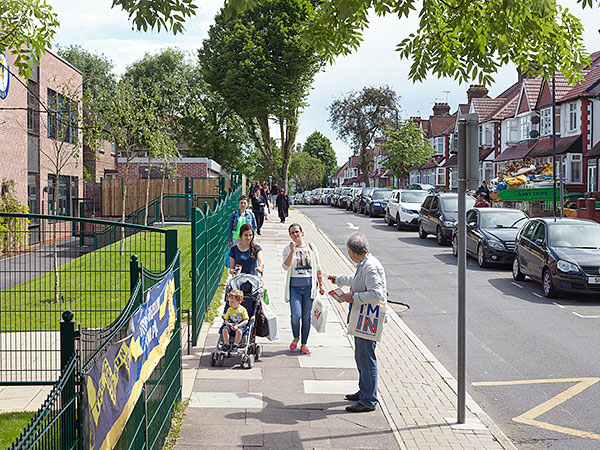Kazuo Ishiguro on his fears for Britain after Brexit

Simply sign up to the Life & Arts myFT Digest -- delivered directly to your inbox.
Since last Friday I have been angry. I began by feeling angry towards those who voted Leave, all those who campaigned on that side. Then I felt even more anger towards David Cameron for allowing such a vastly complex, far-reaching, destiny-shaping decision to be made, not through our time-honoured processes of parliamentary democracy, but in a referendum few had demanded, and whose terms and rules (Minimum turnout? Required margin for victory?) had not been debated, so effectively didn’t exist. Angry that one of the few genuine success stories of modern history — the transforming of Europe from a slaughterhouse of total war and totalitarian regimes to a much-envied region of liberal democracies living in near-borderless friendship — should now be so profoundly undermined by such a myopic process as took place in Britain last week. I am angry that the UK is now very likely to cease to exist, only two years after the Scottish referendum seemed to secure its future.
But anger will make a treacherous guide in our current situation, and it is imperative we think and act coolly. We are where we are, and there is still a huge amount left to play for. I believe, in fact, that in the coming weeks, what we face is a fight for the very soul of Britain. If I were a strategist for the far right, I would today be rubbing my hands with excitement: never has there been a better opportunity, at least not since the 1930s, of pushing Little England xenophobia into neo-Nazi racism. All of us who don’t wish to see such a development must now do all we can to unite a sharply divided, bewildered, anxious, leaderless nation around its essentially decent heart.
But how?
I can well understand the emotion behind the growing campaign to persuade parliament somehow to overrule the referendum result. But this, or any other “loophole” strategy, can only lead to disaster. The country will become even more, perhaps definitively divided; the sense of disenfranchisement already keenly felt by many Leave voters will be hugely compounded; above all, any attempt to get round last week’s result will present the far right with the greatest recruitment tool they have had in the postwar era.
We cannot afford at this moment to be ruled by anger or by a sense of self-righteousness. We must now accept the result of last week’s referendum, and rally around a “Brexit Light” option: a version that continues to allow free movement of people in return for continued access to the single market.

Yes, I am aware that many Leave voters voted that way wanting to stop “uncontrolled immigration”. I realise that “taking the country back” and “sovereignty” were for many people just euphemisms for “kick out the migrants”. A proportion of these people have, and will always have, an unshakeable hatred of foreigners (including white European ones). They are racists. But many others, I believe, who voted to “control immigration” are decent people who have, over the years, become angry and anxious about their lives, and the prospects for their children’s lives, and have come to identify immigration as the root cause of their problems. It is this latter group that must now consider carefully the wider context of that assessment, and decide what next step they really want the country to take.
For what has become rapidly clear is that the Leave camp is not at all united about the sort of Brexit it has won. Of course, they were never obliged to be. They are not a party; they had no official manifesto; they have no formal or legal collective accountability to the nation. (Such is the nature of a referendum, as opposed to parliamentary democracy, which David Cameron chose to abandon.) Nevertheless, the country will soon have to decide. Almost certainly, the UK will not be allowed access to the single market without retaining the free movement of people across her borders. Many Leave campaigners always knew this would be so, but allowed their less savoury colleagues to go on enticing the electorate with impossible promises. So we will soon be faced with this question: do we as a nation hate foreigners sufficiently to deny ourselves access to the single market? This might easily be rephrased as: is Britain too racist to be a leading nation in a modern globalised world? However one puts it, it’s a question that will soon need to be resolved because, as we stand, the future PM has no mandate on what sort of Brexit to negotiate.
. . .
We need a second referendum — not to replay the first, but to define the mandate that comes out of last week’s unfocused result. (Having gone down the referendum path, stupid as it was, I can’t see it will be acceptable now to try to return to Westminster decision-making.) This second debate will have to be one that is openly, unambiguously about the trade-off between ending free EU immigration and continued access to the single market. It will be one in which those who campaigned for and voted Leave for non-racist reasons will have the opportunity to stand this time on the opposite side from those who did. And it will be a chance for those who have instinctively blamed European migrants for the pressures on their housing, jobs, NHS services and schools to listen to arguments putting forward other causes — the failure of successive governments to create affordable housing, the banking crisis, the cutting and underfunding of public services, the long-term failure to address the devastation of large regions previously dependent on manufacturing and heavy industries.

Some may consider it a dangerous gamble to shine a torch so directly on the racist strain within the country — if one indeed exists. What if a second referendum produces, effectively, a mandate for racism? What kind of place will this country become then?
I believe here we need to have some faith in the people of Britain. Even after the shock of last Friday’s result, I still retain that faith. I speak as a 61-year-old man of Japanese birth who has lived here from the age of five; who has observed and experienced this society from the perspective of a small, visibly foreign child who was for years the only such child in his school or his wider community; as someone who has lived in various parts of the country as it went through the major upheavals of the next four decades. The 1970s and 1980s, for instance, saw immigrants come and settle here in large numbers from the Caribbean, the Indian subcontinent and Africa, even as the country went through one economic crisis after the other, and yet the National Front, the BNP and other racist parties have never been able to gain a proper foothold here, not even to the extent of their counterparts on the European mainland, and have crumbled one after the other. The Britain I know — and deeply love — is a decent, fair-minded place, readily compassionate to outsiders in need, resistant to hate-stoking agitators from whatever political extreme — just as it was in the first half of the 20th century when fascism rampaged across Europe.
If that view has now become outdated, if it has become naive, if today’s Britain is one I should no longer recognise as the one I grew up in, then let me at least hear the bad news loud and clear. Let us find out what we’re dealing with. Let us find out who we are.
But I don’t believe it will come to that. We need a second referendum, for or against a “Brexit Light”, that will unite Britain around its traditional humane instincts. And to isolate the racists who today deludedly believe they have won the backing of the country.
Kazuo Ishiguro’s latest novel is ‘The Buried Giant’ (Faber/Vintage) © Kazuo Ishiguro 2016
Photographs: Simon Roberts; Getty Images
Letters in response to this article
Both camps are feeling a sense of exclusion / From Hilda Burke
Leavers are right to think that no one understands / From Colin Fisher
Comments